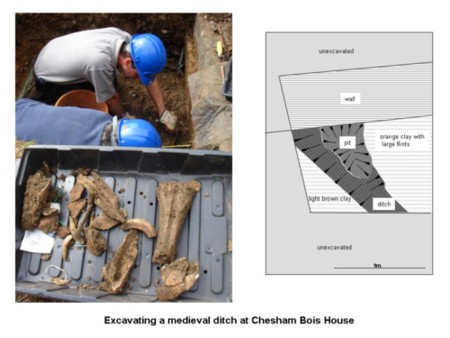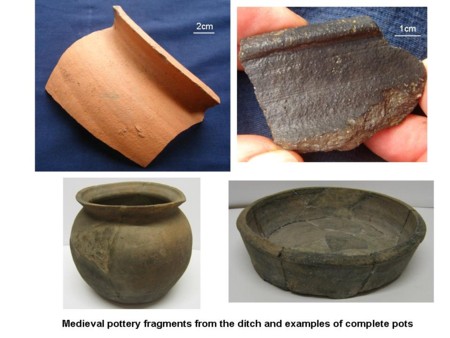Planned Events
Meetings Programme 2025-26
Meetings will start at 8pm. The talks and AGM will be in Chesham Town Hall only, with the exception of those in January and February, which will be on-line only. Non-members are welcome to attend.
For online talks, members and non-members who book with Ticketsource (see below) will receive joining instructions by email shortly before the event. All meetings, INCLUDING THOSE ONLINE, will cost £2 for members and £4 for non-members. Free tea, coffee and biscuits will be provided at the Town Hall meetings.
The entry fee will be payable on the door (cash or card) for Town Hall meetings and via an online booking system for the January and February meetings www.ticketsource.co.uk/cvahs
Friday, 17th October 2025
102 Years of Brickmaking in Bellingdon Jim Matthews, HG Matthews Brickworks
Jim is the grandson of the founder of H.G. Matthews and now manages the family business. In his talk ‘102 years of Brickmaking in Bellingdon’ Jim will tell us about the family brickworks and the production of traditional hand-made and machine-made bricks using the unique Chiltern Hills clay.
Retaining traditional skills and techniques has enabled their bricks to be used in high-end new builds and in the conservation sector..
Friday, 21st November 2025
"Be Patterns, Be Examples" - The History of Quakers in the Chilterns Catriona Troth, Author and Quaker Historian
George Fox, founder of the Quakers, was a visionary and a radical. One of the first places his ideas took root was in the Chilterns.
In this talk, Catriona will show how, for almost four hundred years, Quakers have taken Fox’s exhortation to ‘Be Patterns. Be Examples’, and used it to make their mark on Amersham, Jordans and beyond..
Friday, 16th January 2026 (Zoom Talk)
Finds from HS2 Jay Carver, Archaeology Consultant
Jay is returning to tell us about the HS2 post-excavation work, and what finds research has uncovered.
Friday, 20th February 2026 (Zoom Talk)
Late Iron Age and Roman Braughing in East Hertfordshire Mark Landon ACIfA, Historic Environments Records Officer for Hertfordshire.
Mark will be talking to us about the evolution of the understanding of Late Iron Age and Roman Braughing, from about 50BC to AD410. This is an area he is very familiar with as he started in archaeology at the age of 10, and from 1997 until the present he has led the Braughing Archaeology Group. From 2017 until 2023 he also ran the consultancy, Local Archaeological Services, and from 2022 he has been Historic Environment Records Officer for Hertfordshire. In 2016 he published the book ‘Making a Mint: comparative studies in British Late Iron Age Coin Mould’.
Friday, 20th March 2026
The Development of Ceramics Prof Ian Freestone, Emeritus Professor of Archaeological Materials & Technology.
Ian will be describing the development of ceramic technology from the 6th Century AD in North China, through to 18thC UK bone china
Friday, 17th April 2026
AGM, and President's Talk by Dr Wendy Morrison FSA:
Subject TBD
Dr Wendy Morrison is currently Heritage & Archaeology Manager for the Chilterns National Landscape. She also is Senior Associate Tutor for Archaeology at the Oxford University Dept for Continuing Education. Wendy’s research areas are Prehistoric European Archaeology and Landscape Archaeology. She has nearly two decades’ excavation experience in Southern Britain, the Channel Islands, and India and is a Fellow of the Society of Antiquaries.
Archaeology Field Group Programme 2025-26
Digs will be announced to members as and when they are arranged. Participants in all digs must be CVAHS members. If you are interested, but not yet a member, please contact CVAHS via this web site to confirm details of how to participate.
On our digs, we welcome people with experience and also novices - training in survey, excavation and recording techniques is given. For those who find digging difficult, there is valuable work to do on post-excavation cleaning, analysis and recording of finds.
|












